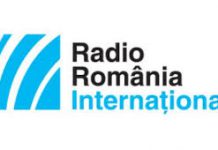Russian vessels are no longer allowed to enter ports in the EU, including Romania. The ban also applies to ships that have replaced the Russian flag with another country’s colours since February 24, when the war in Ukraine started, but not those who need assistance or refuge for safety reasons or those who have rescued lives at sea.
This is one of the EU sanctions against Russia which will be extended. The new measures will also target Russian banks, particularly Sberbank, as well as the oil sector, the president of the European Commission Ursula von der Leyen told the German paper Bild am Sonntag, quoted by Reuters.
„We are looking further at the banking sector, especially Sberbank, which accounts for 37% of the Russian banking sector. And, of course, there are energy issues,” Ursula von der Leyen detailed. She explained the EU was working on ‘clever mechanisms’ in order to include the oil sector in the next sanctions.
„What should not happen is that (Russian President Vladimir) Putin collects even higher prices on other markets for supplies that would otherwise go to the EU. The top priority is to shrink Putin’s revenues,” she emphasised.
Brussels has so far exempted Russia’s largest bank from the previous sanctions, because Sberbank and Gazprombank are the main payment channels for the oil and natural gas from Russia, which EU member countries continue to buy in spite of the invasion of Ukraine.
On the other hand, on Sunday the Union announced EUR 50 million would be earmarked for humanitarian aid to be sent to Ukraine and the Republic of Moldova.
„As heavy fighting and missile strikes continue to destroy critical civilian infrastructure, humanitarian needs in Ukraine remain extremely high,” reads an EU news release quoted by DPA.
Some EUR 45 million will go into humanitarian programmes in Ukraine, while the Republic of Moldova, where hundreds of thousands of Ukrainian nationals have taken refuge since the start of the war, is set to receive EUR 5 million.
The money is part of the EUR 1 billion package pledged by the European Commission in a donor conference last week, called Stand Up For Ukraine. So far, the EU said, EUR 143 million of this amount has already been spent in humanitarian aid funding in response to the war. The funding announced on Sunday will address the most pressing humanitarian needs by providing emergency medical services, access to safe drinking water and hygiene, shelter and protection, cash assistance, and support against gender-based violence.
Eugen Coroianu, Radio Romania International










